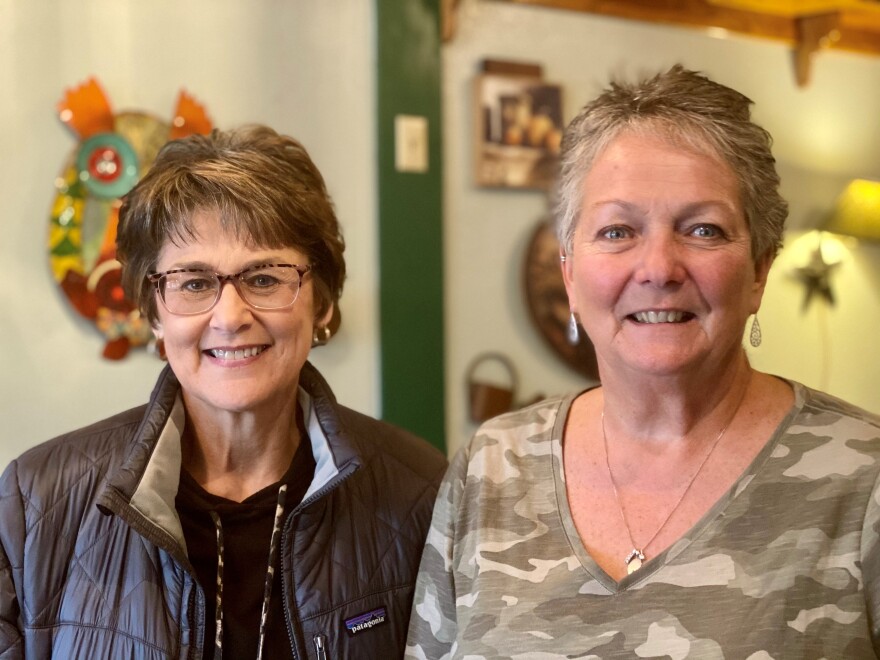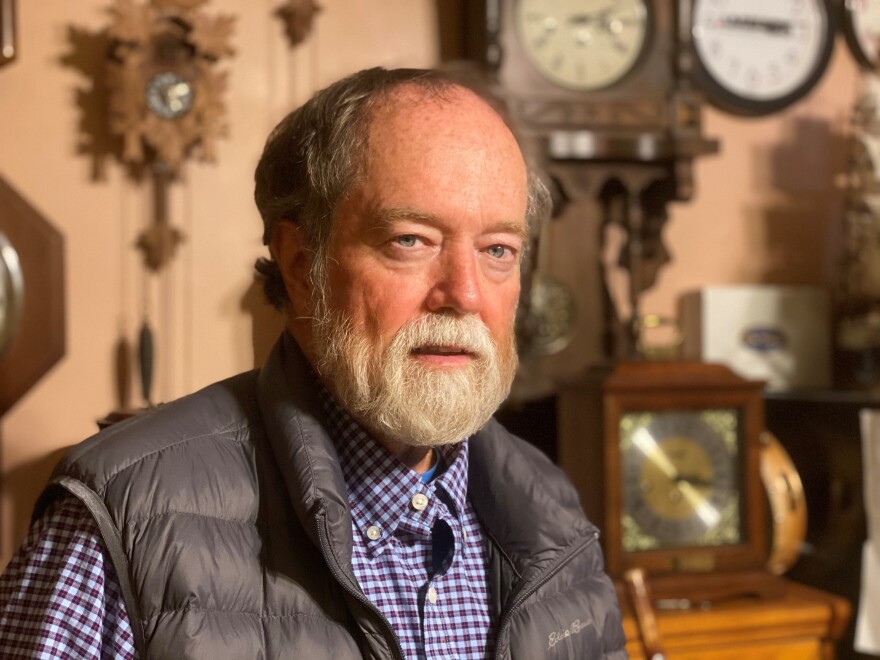Rural people often write off cities as rotten, crime-ridden places where rioters run the streets and tax dollars go to die.
Urban core residents can think of the countryside as a vast unknown land where gun-toting racists patrol dirt roads.
“The animosity is horrible,” said Bobbie Spiezio, who lives near Bentonville, Arkansas. “We need to just quit fighting with each other, come together as one nation, like our pledge of allegiance says, and fight together and be Americans.”
In fact, Americans living in poorer, predominantly Black parts of big cities share a list of things that are also killing people in the country's mostly white, small, shrinking towns. Obesity, substance abuse, untreated mental health issues and poverty are toward the top.
Jeanette Countee, from Kansas City, Missouri, says it’s time to focus on those shared problems.
“Unemployment is high. People don't have jobs. And, Lord knows, this little COVID thing is everywhere and it doesn't discriminate," Countee said. "So, yeah, the problems are the same."
And yet the city-country rivalries persist.
Travis Allen, from tiny, remote Stafford, Kansas, doesn’t see a lot of common ground between rural and urban core America. In fact, he sees urban areas sucking the life out of places like his hometown.
“The biggest issue in Stafford is that rural America is dying," Allen said. "All the money and all the people leave and go to the coasts.”

One major problem is drugs. Methamphetamine addiction has raged in rural areas for decades. Now it’s come to the center of Kansas City.
Bryant Miller, who lives close to 43rd Street and Prospect Avenue in Kansas City, said a group of meth users took over a house next to his earlier this year. Since then, it’s been nearly non-stop traffic, and noise.
“I’m just fed up,” Miller said. “I’m ready for some peace and quiet."
Kansas City’s urban core may seem a long way from the countryside, but Pat Clarke, an urban core developer and anti-crime activist, said meth is common ground.
“The same things that are killing us here," Clark said, “are killing them there.”
It’s not just meth. U.S. Rep. Emanuel Cleaver of Kansas City said poverty and the ills that follow it can be found in urban and rural ZIP codes.
“And here’s the deal,” the congressman said, “both areas need government help.”
Most of Cleaver’s district is rooted in Kansas City’s urban core, where Pat Clarke lives. But it fans out over hundreds of miles of farmland and small towns to the east.
“You have to be able to represent rural America and the urban core,” Cleaver said. “And the one thing that people don't realize is that they are very similar.”
Cleaver has two types of areas in his district. One is Kansas City's predominantly Black urban core. The rest of his district is rural and overwhelmingly white. Crime is far worse in the city. But beyond that, Cleaver contends the areas are virtual "twins."
Still, the people in those different areas don't typically vote in the same ways or see themselves as natural allies.

“I just think we’re more, well, conservative,” said Christie Nail, a life-long resident of the Orrick, Missouri, area. “They’re more liberal.”
Nail says Orrick is a close-knit town that pulls together whenever there’s a natural disaster or a death in the community. She is most concerned about the dwindling number of school-aged kids in the town of 800. She fears that may ultimately threaten Orrick’s school district, a local point of pride. But she does concede that drugs are undermining Orrick, too.
“Because of the drug problem, crime," Nail said. "We have a lot of break-ins, a lot of theft.”
And Orrick has another basic problem in common with the urban core. Affordable housing is in critically short supply.
“You can’t rent a house here. There’s no rental houses available,” said Roger Thomas, a former mayor of Orrick. “The last new house that was built here, I think, was 2008.”

The housing problem crimps growth. When a school district hired a new football coach, Thomas was unable to find him a place to live. That makes it hard to attract new businesses.
And it leads to another problem common to many urban and rural communities: a depressed economy. Good-paying professional jobs tend to be in short supply in both places, and Becca Mason, the elementary school counselor in Orrick said it can be hard on kids.
“Family members using drugs, parents not working, not having enough money for food and everything," Mason said. "And there are some families, they’re doing the best they can, but they have to work odd hours so they’re never home. So there’s a lack of supervision.”





